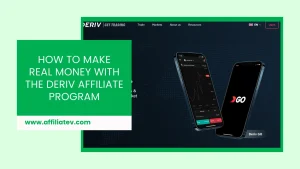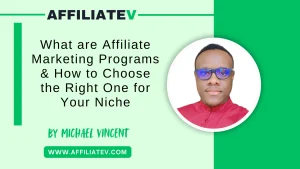Searching for the Louis Vuitton affiliate program? Here’s why it doesn’t exist and which luxury brands actually pay.
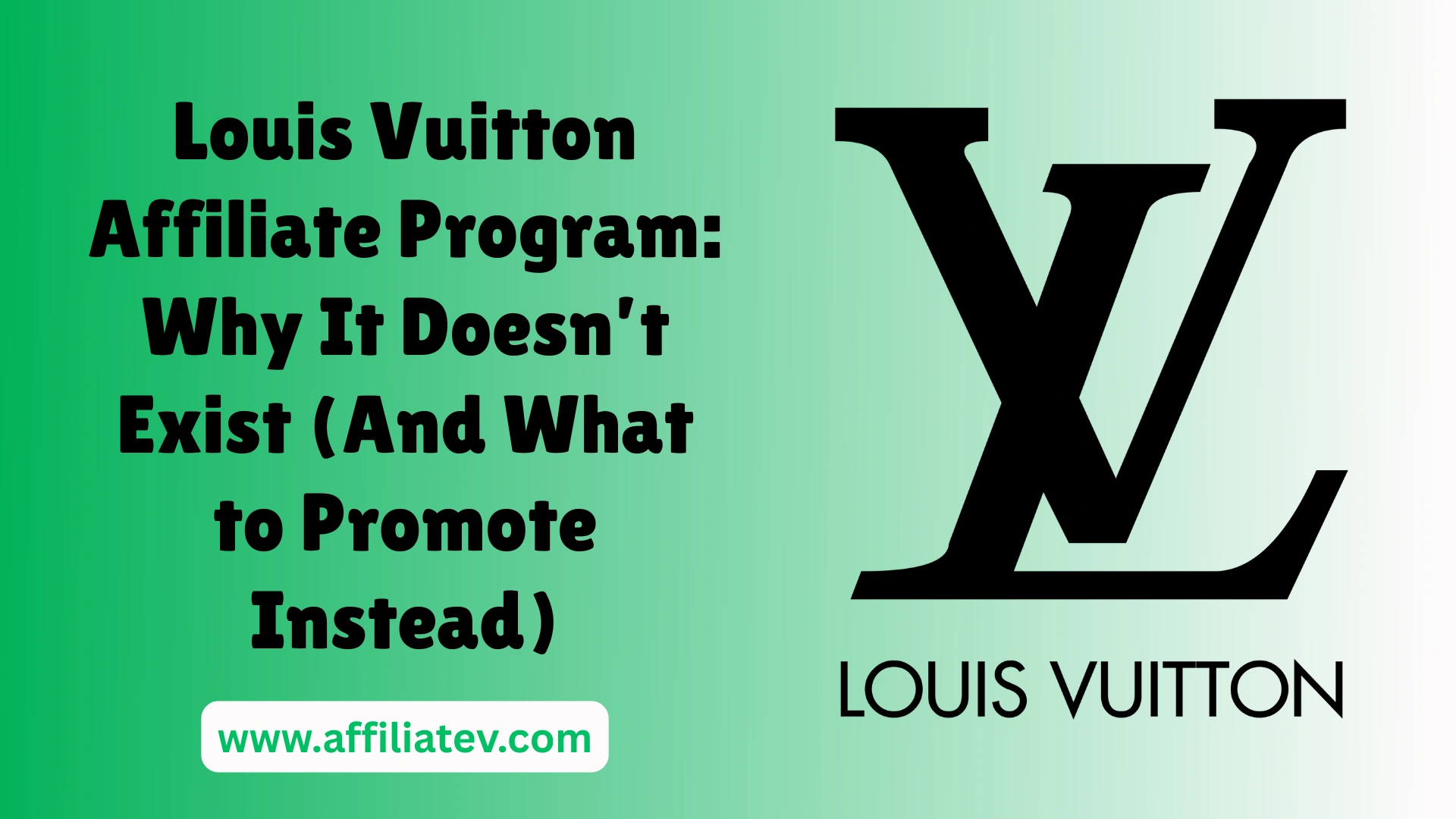
If you’re searching for the Louis Vuitton affiliate program, you’re not the only one. It sounds like an easy win: promote one of the most iconic luxury brands and earn a nice commission, right?
Well, here’s the short and quick answer: Louis Vuitton doesn’t have an affiliate program.
That’s not a glitch or outdated info. It’s just how they run their business. They sell directly through their own stores and website. No third-party promos. No affiliate tracking links. Just nothing.
But there are other alternatives. You can still earn from the luxury fashion space, and some brands actually pay out really well.
In this post, I’ll explain why Louis Vuitton keeps things closed and also show you a few luxury affiliate programs that do work and pay.
Let’s break it down.
Key Takeaways
Recommended Reading: How To Start Affiliate Marketing in 2025: A Comprehensive Step-by-Step Tutorial Guide for Beginners
Does Louis Vuitton Have an Affiliate Program?
Let’s clear this up fast. No, Louis Vuitton doesn’t have an affiliate program.
You won’t find it on ShareASale, CJ, Rakuten, Impact, or anywhere else. They don’t work with affiliates. They don’t partner with influencers through public networks either.
If you’ve seen blogs or YouTube videos claiming otherwise, they’re probably outdated, scammers, or just trying to get clicks.
Louis Vuitton sells through its own website and stores only. No third-party shops. No resellers. That’s part of how they keep the brand so exclusive.
For affiliate marketers, that means no tracking links, no commissions, and no official way to promote their products for profit.
Frustrating?
Yeah, kind of.
But it’s also a chance to think smarter.
Why You Can’t Join a Louis Vuitton Affiliate Program
Louis Vuitton isn’t being difficult. They’re just doing what works for their brand.
They sell luxury. Not just bags and shoes, but the idea of status, scarcity, and control. That’s the game.
Letting affiliates promote their products would mean giving up some of that control. And they’re not about to risk the brand image they’ve spent over 100 years building.
Here’s what that looks like:
- No discounts
- No third-party sellers
- No affiliate links showing up in random blogs or sites
They want every sale to feel premium. So, they keep it all in-house: stores, website, and customer service.
For affiliate marketers, that means one thing: you’re not getting in.
But don’t sweat it. There are plenty of other luxury brands that actually want your traffic and will pay for it.
What Affiliate Marketers Can Do Instead
Just because Louis Vuitton is off-limits doesn’t mean luxury is.
There are plenty of high-end brands with active affiliate programs. You can still tap into that luxury buyer mindset and earn solid commissions.
Here are some great alternatives:
Top Luxury Affiliate Programs to Promote (Instead of Louis Vuitton)
1. Net-a-Porter
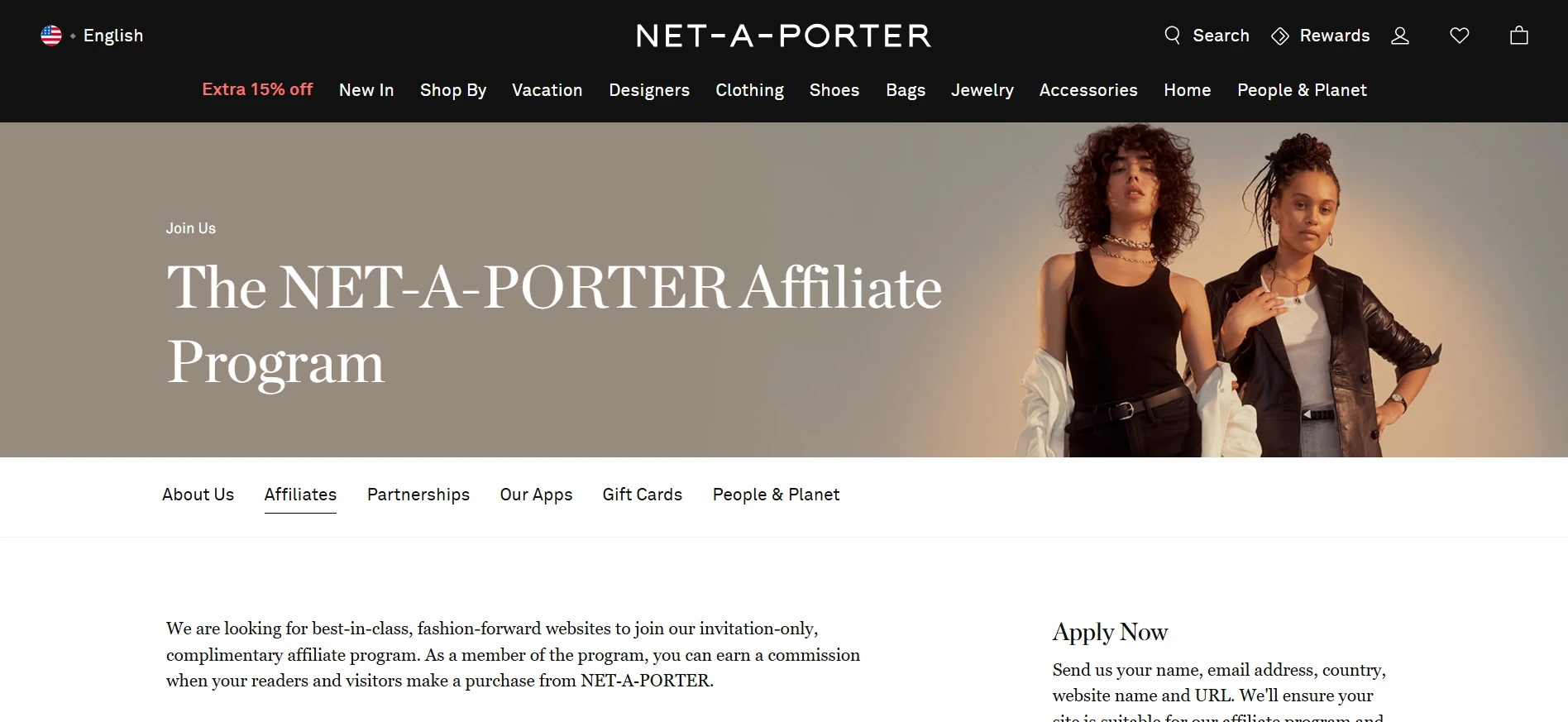
Net-a-Porter is one of the most well-known online luxury retailers. It focuses heavily on women’s fashion, including designer clothing, shoes, accessories, and beauty products. They carry top-tier brands like Gucci, Prada, Saint Laurent, Balenciaga, and more. The site is sleek, curated, and built for high-end shoppers.
They ship worldwide, offer regular new arrivals, and are part of the Yoox Net-a-Porter Group, so they’re trusted in the industry.
Pros & Cons:
| Pros | Cons |
| Trusted luxury brand | Mostly women-focused |
| Carries top designers | Some items sell out quickly |
| Strong global presence | Limited options for men |
| Works with major affiliate networks | Approval can be selective |
2. Farfetch
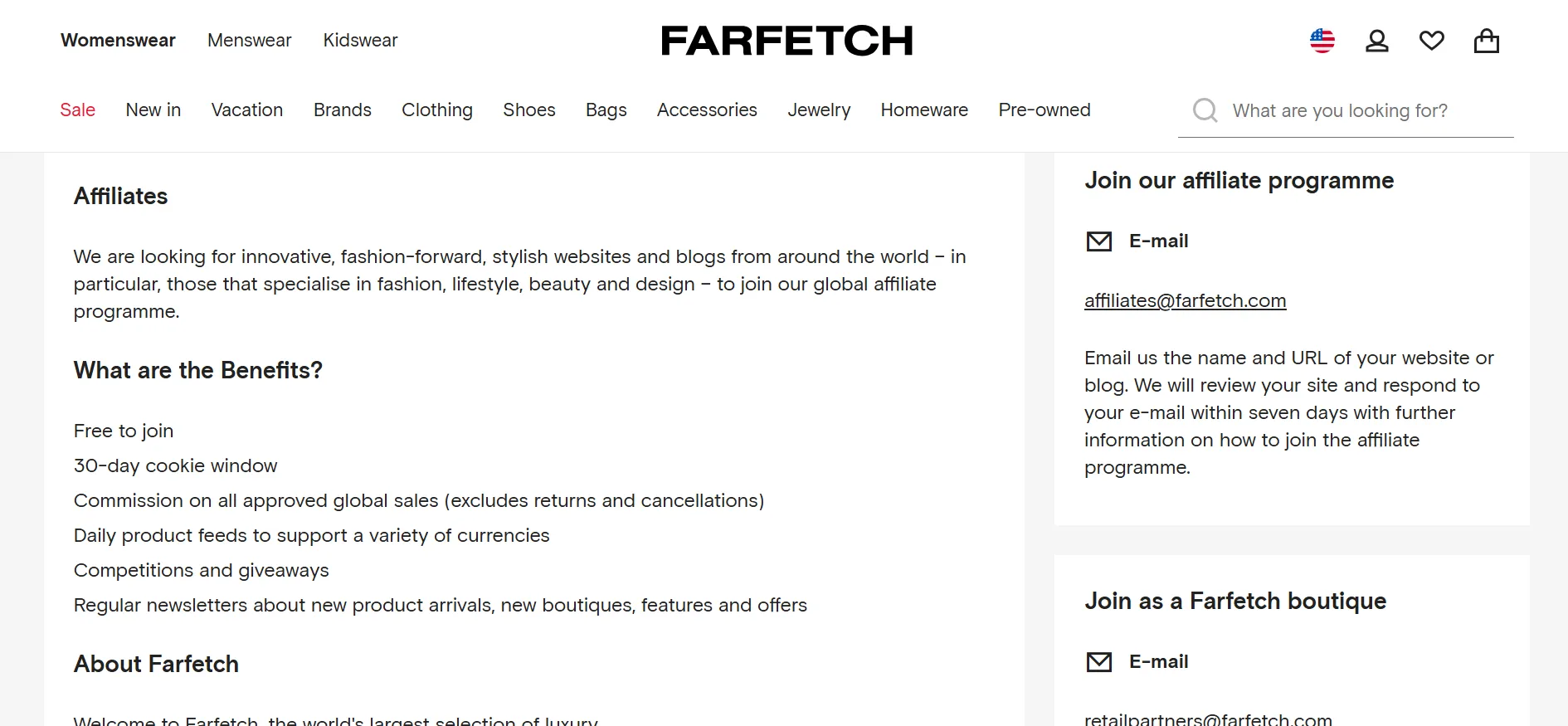
Farfetch is a global marketplace that connects shoppers to hundreds of luxury boutiques and brands. You’ll find everything from Off-White and Givenchy to Versace and Burberry. What makes Farfetch unique is its reach; they ship to over 190 countries and offer localized experiences.
You’re not just promoting one store, but a network of boutiques through a single platform. Great for affiliates targeting global traffic.
Pros & Cons:
| Pros | Cons |
| Huge product selection | Prices can vary by seller |
| Global reach and shipping | Delivery times can vary |
| Great for both men’s and women’s fashion | Sometimes inconsistent stock levels |
| Competitive commissions | Not all regions get same deals |
3. SSENSE
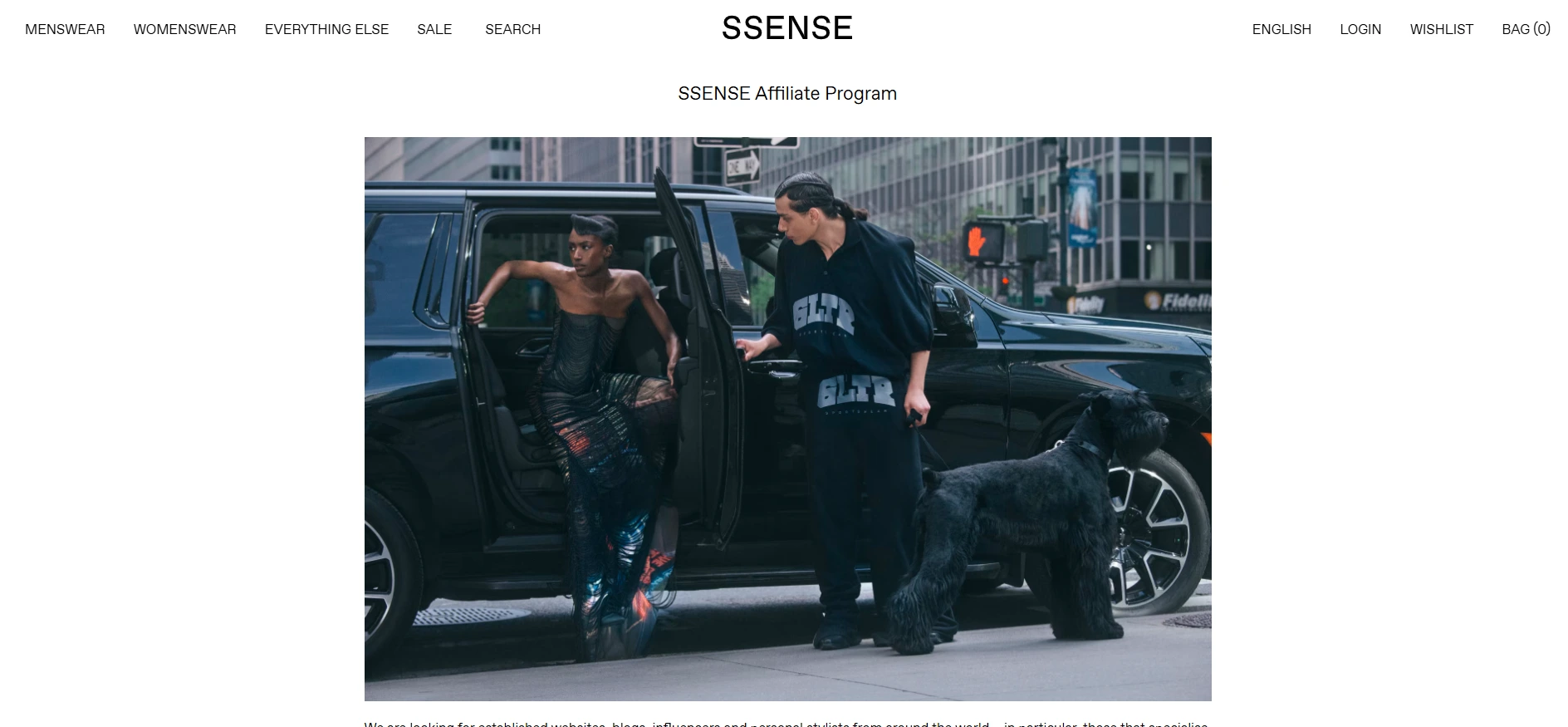
SSENSE is a Canadian retailer that blends luxury with high-end streetwear. Think Rick Owens, Acne Studios, AMIRI, and Maison Margiela. It leans edgy and modern but less “classic luxury,” more cool and current.
They’ve built a strong presence with younger shoppers, especially those into fashion-forward or minimalist looks. It’s also one of the cleaner, more curated shopping experiences online.
Pros & Cons:
| Pros | Cons |
| Great for streetwear + luxury niches | Not for traditional luxury shoppers |
| Strong brand identity | Smaller catalog than Farfetch |
| Popular among Gen Z and Millennials | Shipping options can be limited |
| Works well for men’s fashion | Some brands are very niche |
4. MyTheresa
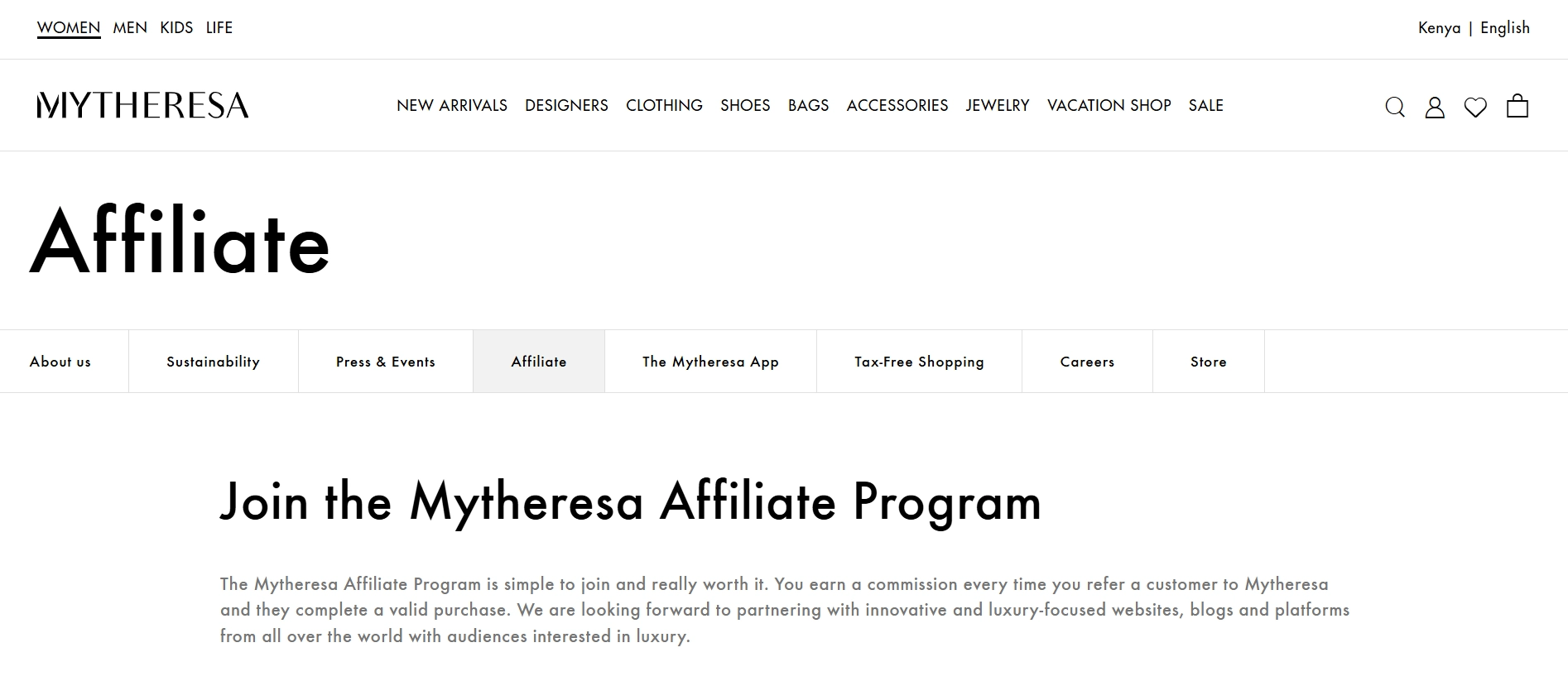
MyTheresa focuses mainly on women’s luxury fashion, with some expansion into men’s and kids’ sections. It’s known for a clean, elegant interface and high average order values.
They stock top designers like Valentino, Chloé, Loewe, and Jimmy Choo. Their customers are loyal and tend to return, which is great for long-term affiliate earnings.
Pros & Cons:
| Pros | Cons |
| Clean, easy-to-navigate shopping experience | Mostly targets women |
| High AOV (average order value) | Smaller brand mix compared to others |
| Fast international shipping | Limited streetwear or casual options |
| Good conversion rates | Doesn’t always offer coupons/deals |
5. Saks Fifth Avenue
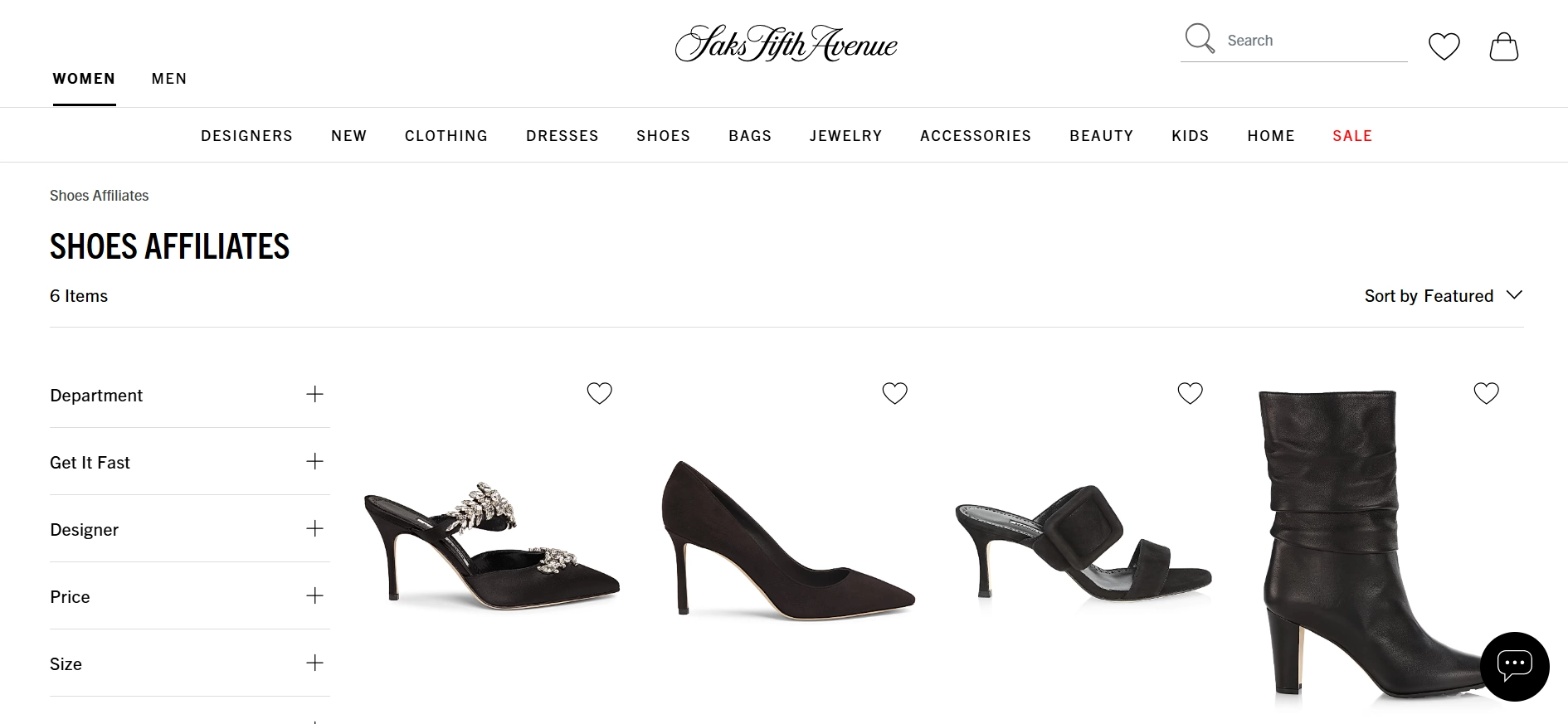
Saks is a U.S.-based luxury department store with a long-standing reputation. They carry fashion, beauty, accessories, and more — from brands like Alexander McQueen, Dior, and Balmain.
Although they don’t stock Louis Vuitton, they cover almost every other premium name. Their affiliate program is solid and often runs seasonal promotions.
Pros & Cons:
| Pros | Cons |
| Big-name U.S. luxury brand | U.S.-centric audience and shipping |
| Offers both fashion and beauty | No Luis Vuitton or Chanel |
| Good variety for men and women | Site experience can feel dated |
| Regular promos and sales | Can be heavy on clearance items |
These brands want traffic. They’ll give you affiliate tools, banners, and promo codes and track your referrals.
So yeah, you may not be able to promote Louis Vuitton, but you can still earn in the luxury lane.
How to Position Yourself in the Luxury Space Without LV
So, you can’t promote Louis Vuitton. That’s fine. Most buyers care more about the look than the logo. It’s all about how you present the products. That’s where your content comes in.
1. Focus on Style, Not Just Brands
People searching for luxury fashion don’t always want to be sold to. They want inspiration. They want to see how things fit together.
Here’s what works:
- Style guides: “5 Outfits That Scream Quiet Luxury.”
- Lookbooks: Mood-based, seasonal, or celebrity-inspired
- Trend posts: “Best Designer Bags Under $1,500 This Fall.”
You’re not pushing a brand; you’re creating a look your audience wants to copy. That’s what gets clicks.
2. Use Visual Platforms That Convert
Some luxury buyers read blogs, but most hang out where they can see style. Use platforms built for visuals.
- Instagram: Great for outfit inspo and shoppable posts
- Pinterest: Perfect for evergreen traffic from lookbooks and style pins
- YouTube: Hauls, reviews, and styling videos build trust fast
These platforms support affiliate links (either directly or through link-in-bio tools), so they’re great for driving commissions.
3. Mix Luxury With Mid-Tier Brands
Not everyone can afford a head-to-toe designer. But they’ll splurge on one thing.
Here’s a smart move:
Pair luxury bags or shoes with mid-tier clothing brands like COS, Reiss, or even Zara. This makes your content relatable and lets you link to more affiliate programs.
It also widens your audience. You’re not just talking to the 1%. You’re reaching style-focused buyers with money to spend, even if it’s not all on one item.
4. Build a Personal Brand Around Style
People follow you, not just the products. Whether it’s minimal, bold, or glam, just own your niche. When you show consistency, your audience trusts your picks. That trust is what makes them click and buy.
You don’t need a huge following, just the right people who value your taste.
5. Leverage Seasonal and Limited-Time Content
Luxury shoppers love timing: new drops, seasonal collections, and limited editions.
Always try to create content around:
- “Best Winter Designer Boots (2025 Edition)”
- “New Season Launches Worth the Splurge”
- “Luxury Bags That Hold Value Over Time”
This taps into urgency and relevance. Plus, it keeps your content fresh and searchable.
Conclusion
Let’s keep it simple. Louis Vuitton doesn’t offer an affiliate program.
You’re not missing out. The brand has control, status, and scarcity, but none of that helps you earn.
What does help you earn is knowing where the opportunity actually is. There are other luxury brands with strong commissions, global reach, and affiliate tools ready to go.
Your audience doesn’t care if it’s LV or not. They care about style. If you show them how to look good, they’ll click. If the product feels premium and the content is strong, they’ll buy.
So stop stressing over the one brand that’s closed off. Focus on the ones that pay you to show up. That’s the smarter move every time.
Frequently Asked Questions
Is there a Louis Vuitton affiliate program?
No, Louis Vuitton does not have an affiliate program. The brand sells directly through its own stores and official website. They don’t use affiliate networks, coupon sites, or third-party resellers. This is part of how they protect their brand image and pricing. So if you’re looking to promote Louis Vuitton products for commission, there’s no official or approved way to do that. Instead, consider other luxury retailers with active affiliate programs like Farfetch, Net-a-Porter, and MyTheresa. These options offer similar products and actually reward affiliates.
Why doesn’t Louis Vuitton offer an affiliate program?
Louis Vuitton doesn’t offer an affiliate program because they want total control over branding, pricing, and where their products appear online. They aim to keep the brand exclusive and high-end. Allowing affiliates or third-party sellers would mean giving up some of that control. That’s why you won’t find LV on platforms like ShareASale, CJ, or Rakuten. The company keeps all sales in-house and doesn’t rely on promotions or affiliate referrals. It’s a closed system, and it works for them, but not for affiliate marketers.
Can I promote Louis Vuitton products in any other way?
You can mention or feature Louis Vuitton in your content, but you won’t earn commissions from it. Some creators use LV for visual appeal in style guides or luxury-themed posts, then link to affiliate-friendly alternatives. Another option is promoting resale platforms that offer used or vintage LV items, like The RealReal or Fashionphile, which do have affiliate programs. Just make it clear you’re linking to secondhand options. But again, there’s no official Louis Vuitton program that pays affiliates directly.
What luxury affiliate programs pay the best commissions?
Some of the top-paying luxury affiliate programs include Farfetch, SSENSE, MyTheresa, and Net-a-Porter. These platforms offer access to major designer brands, global shipping, and high average order values. Commission rates usually range from 5 to 12 percent, depending on the network and product category. These programs are available through CJ, Rakuten, Awin, or Impact. High-end beauty sites and retailers like Saks Fifth Avenue also offer solid commissions and convert well with U.S. shoppers. They give you affiliate tools, promo links, and regular campaign updates to help boost performance.
What’s the best way to make money in the luxury niche without LV?
Focus on content that sells style, not just names. Create style guides, trend posts, and lookbooks that mix luxury with mid-tier fashion. Use visual platforms like Instagram, Pinterest, and YouTube to show off the products in context. Promote brands with actual affiliate programs so you can earn commissions. Platforms like Farfetch and SSENSE are great alternatives. You don’t need to promote Louis Vuitton to make real money. Build trust, stay consistent with your content, and give your audience products they can actually buy and you can actually earn from.



